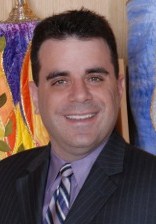Judaism has a deep and rich tradition of storytelling, of passing down stories from one generation to the next. To carry on that tradition, Stories We Tell, from ReformJudaism.org, will share a new story with you every Thursday. Whether you listen while driving to work, preparing Shabbat dinner, or taking your kids to school, each episode will give you a new story to reflect on and discuss with the people in your life. Stories We Tell is a project of the Union for Reform Judaism, a leading voice in the discussion of modern Jewish life.
Isaac’s favorite holiday was Sukkot, and his favorite part of Sukkot was the etrog. He always bought the biggest etrog he could afford, and he dreamed of even bigger ones. One year he had saved up for the biggest and most beautiful etrog, and on his way to buy it, he saw a man crying on the side of the road. What happened next? Rabbi Mark Kaiserman retells the story. For a similar version of this story, see So What? in “The Jewish Story Finder: A Guide to 668 Tales Listing Subjects and Sources” by Sharon Barcan Elswit.
Three ways to listen:
- Listen to the full podcast below
- Subscribe to the podcast on iTunes
- Suscribe to the RSS feed
Transcript
[URJ Intro:] Welcome back to "Stories We Tell," a podcast from ReformJudaism.org. Reform Judaism has always had a deep and rich tradition of storytelling, passing our stories down from one generation to the next. And here each week, we share a new one with you. This week, Rabbi Mark Kaiserman, the rabbi of the Reform temple of Forest Hills, shares the story of "The Importance of an Etrog."
[Rabbi Mark:] Isaac loved being Jewish. He especially loved the Jewish holidays. His favorite holiday of all was Sukkot. He loved building the Sukkah and decorating it. He loved inviting in friends to share the holiday with him. But his favorite part of Sukkot -- his favorite part most of all was the etrog every year. He bought the biggest and most beautiful etrog he could afford. But he was never really happy with it. He knew there were bigger and more beautiful etrogs out there.
"I want an etrog that's huge," he would say. "One that I can't even wrap my hands around!"
"What would you do with an etrog that big?" His wife Deborah asked. "You couldn't even lift it up and wave it with the lulav!" But Isaac was determined. So one year he saved all his money. He was ready to find the biggest and most beautiful etrog out there.
"Why do you focus so much on the etrog?" Deborah asked him as Sukkot drew close.
"I once heard that the etrog was the fruit that grew on the Tree of Knowledge of Good and Evil in the Garden of Eden. So it must be the most important fruit in the world," he told her. "I want to bring Eden to our sukkah.".
"That's the same fruit that got Adam and Eve kicked out of the Garden of Eden!" Deborah said, "You should be careful."
When Yom Kippur ended, Isaac built his family sukkah, and then early the next day, he set out for the big city to buy the etrog of his dreams. He walked a long way, passing no one. Then suddenly, he met a man who was crying on the side of the road.
"What's wrong?" Isaac asked.
"Oh woe is me," the man sobbed. "I am a wagon driver. I carry passengers and I move boxes from place to place -- it's really a hard life. This morning my horse fell in a hole and broke his leg. Now I have no horse, so I have no work and I can't make any money for my family." Immediately, Isaac handed over his savings to the man.
"Go buy a new horse," he said to the driver. "Take care of your family."
Isaac turned and went home. Deborah was very surprised that Isaac was back so soon and she saw her husband's hands were empty.
"What happened?" she asked.
"Well," Isaac smiled, "I guess I bought an etrog as big as a horse." And he told her the story. "I can borrow someone else's etrog for the prayers this year."
Deborah's neighbor had also been excited to see the giant etrog, and Deborah happened to tell her about Isaac and the wagon driver. Word quickly spread throughout the village. Soon, there was a secret collection taken up and just before Sukkot, the villagers came to Isaac and presented him with his own etrog. It wasn't as big as a horse. In fact, it wasn't even the biggest etrog Isaac had ever seen, but it was a beautiful green, and had a wonderful smell.
So on the first day of Sukkot, the whole town showed up at Deborah and Isaac's sukkah. They watched as he carefully held the etrog in his left hand and put the lulav in his right. And he said the blessings and shook the four species. When he finished, he smelled the etrog, and seeing the whole town, a big smile burst across Isaac's face.
"Is the etrog big enough for you?" one neighbor asked. Isaac smile grew even wider.
"The best thing about this etrog isn't its smell or its size, it's that it brought all of you together to celebrate Sukkot with Deborah and me. Having you here is our Garden of Eden. Chag Sameach!"
[URJ Outro:] Now that you've heard the story "The Importance of an Etrog," I'm wondering when you've learned a lesson that you didn't think you needed, and did others come alongside you? If you want to share that with us, we'd love to hear about it. You can find us at Facebook.com/ReformJudaism, and on Twitter, our handle is @ReformJudaism. Thanks for listening to "Stories We Tell." If you enjoy this week's story, rate and review us on iTunes, and you can always find new episodes every Thursday on ReformJudaism.org, where you can also learn a little bit more about Jewish rituals, holidays, and more. "Stories We Tell" is a project of the Union for Reform Judaism, a leading voice in the discussion of modern Jewish life.
Until next week -- l'hitraot!
Give to the URJ
The Union for Reform Judaism leads the largest and most diverse Jewish movement in North America.




